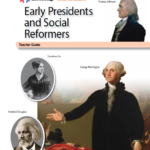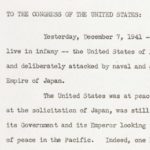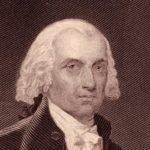This lesson will explore the implementation of the war-making power from the first declared war under the Constitution—the War of 1812—to the Iraq War. Using primary sources, students will investigate how the constitutional powers to initiate war have been exercised by the legislative and executive branches at several key moments in American history. They will also evaluate why and how the balance of authority in initiating war has changed over time, and the current balance of power.
James Madison Lesson 3: Raising an Army: Balancing the Power of the States and the Federal Government
Early Presidents (CKHG Unit)

This unit (first half of Early Presidents and Social Reformers) focuses on the first seven presidents of the United States. Across 9 lessons, students learn about how the early presidents organized the federal government, built a national capital, directed a second war with Great Britain, more than doubled the size of the country, and formulated a “hands-off” foreign policy in the Western Hemisphere.
Dolley Madison and Politics
This short video analyzes both the practical and the psychological contributions made by Dolley Madison to the young republic. Practically, Dolley’s weekly receptions in the drawing room of the White House became the only public gathering place in Washington, DC for doing the real business of politics. Psychologically, Dolley became, in the words of Professor Catherine Allgor, a “Republican Queen”, whose charm and charisma made her a symbol of America during the War of 1812.

